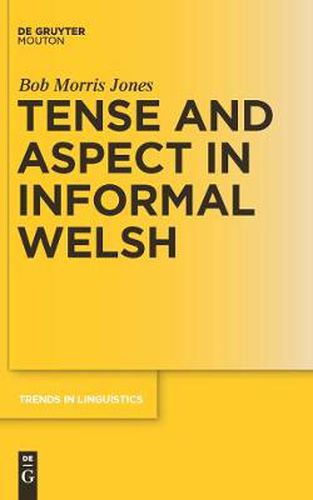Readings Newsletter
Become a Readings Member to make your shopping experience even easier.
Sign in or sign up for free!
You’re not far away from qualifying for FREE standard shipping within Australia
You’ve qualified for FREE standard shipping within Australia
The cart is loading…






Thebook provides a descriptive account of the semantics of three grammatical areas in informal Welsh: inflections of finite verbs, perfect aspect, and progressive aspect. The analyses distinguish context-independent primary meanings from other meanings which are due to implications and contextual effects.
The inflections convey factuality, tense, (morphological) aspect, and habituality, but the inflections and their meanings are differently distributed over different sorts of verbs. The analysis of factuality outlines different sorts of counterfactual situations, and discusses whether counterfactual meaning can best be accounted for in terms of true statements in imagined possible worlds or in terms of false statements in the actual world. The analysis of tense argues that it conveys evaluation time and not situation time, which can be different to evaluation time, and that tense is not a collection of simple labels like ‘past’ or ‘present’ but is a combination of two times, a deictic reference time and a relative evaluation time, which organize the tenses as a system. Morphological aspect is discussed in terms of perfective and imperfective meanings. Habituality is a property of situations which can be described by all inflections but the study shows that bod ‘be’ alone has specialized forms to convey habituality.
The discussion of the perfect aspect considers the appropriateness of anterior time, retrospective view, and current relevance to account for its meaning. Theauthor argues that the progressive aspect conveys a durative view and the non-progressive a non-durative view, and shows that the progressive can describe situations which are described by the non-progressive in other languages. The study also considers whether other expressions can be aspect markers.
The book shows that the primary meanings of the three grammatical areas are subject to various constraints.
$9.00 standard shipping within Australia
FREE standard shipping within Australia for orders over $100.00
Express & International shipping calculated at checkout
Thebook provides a descriptive account of the semantics of three grammatical areas in informal Welsh: inflections of finite verbs, perfect aspect, and progressive aspect. The analyses distinguish context-independent primary meanings from other meanings which are due to implications and contextual effects.
The inflections convey factuality, tense, (morphological) aspect, and habituality, but the inflections and their meanings are differently distributed over different sorts of verbs. The analysis of factuality outlines different sorts of counterfactual situations, and discusses whether counterfactual meaning can best be accounted for in terms of true statements in imagined possible worlds or in terms of false statements in the actual world. The analysis of tense argues that it conveys evaluation time and not situation time, which can be different to evaluation time, and that tense is not a collection of simple labels like ‘past’ or ‘present’ but is a combination of two times, a deictic reference time and a relative evaluation time, which organize the tenses as a system. Morphological aspect is discussed in terms of perfective and imperfective meanings. Habituality is a property of situations which can be described by all inflections but the study shows that bod ‘be’ alone has specialized forms to convey habituality.
The discussion of the perfect aspect considers the appropriateness of anterior time, retrospective view, and current relevance to account for its meaning. Theauthor argues that the progressive aspect conveys a durative view and the non-progressive a non-durative view, and shows that the progressive can describe situations which are described by the non-progressive in other languages. The study also considers whether other expressions can be aspect markers.
The book shows that the primary meanings of the three grammatical areas are subject to various constraints.